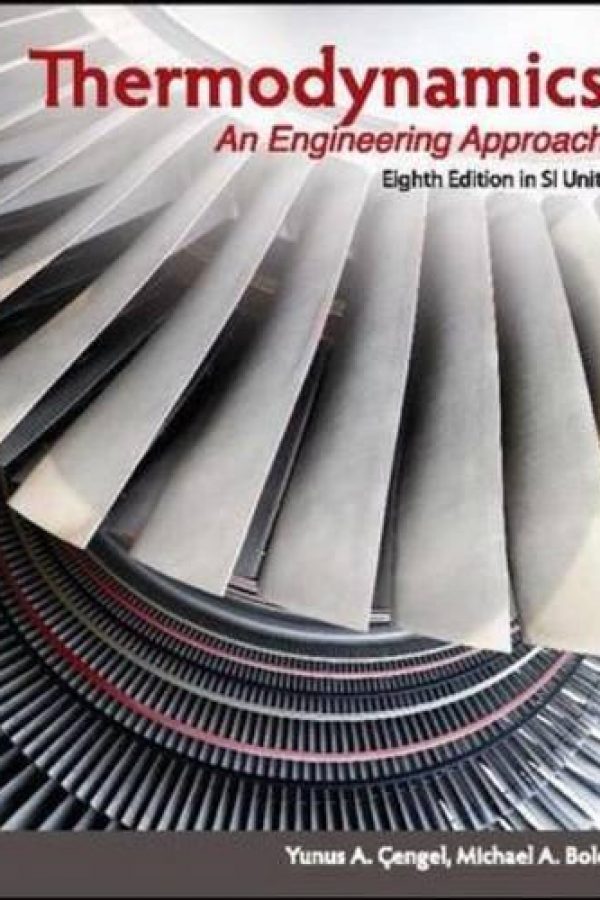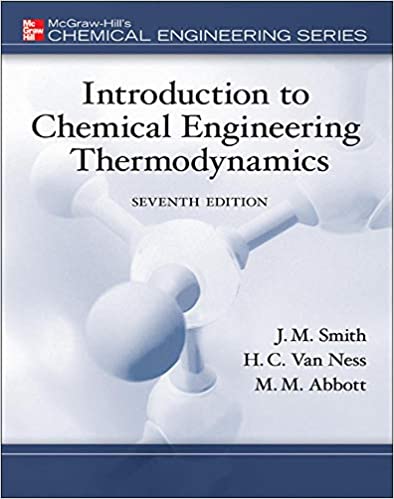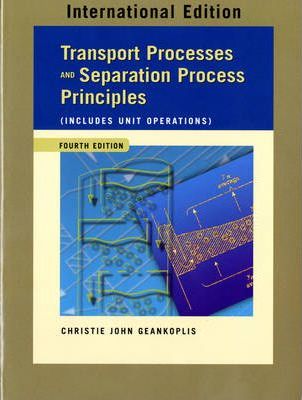Resources in Chemical Engineering (Part II)
Year Two started off incredibly well before turning into an obstacle course towards the end. The obstacles were in fact nothing largely related to academics but had everything to do with the changing dynamics of my group of friends. Perhaps that is an anecdote worth sharing some other time. But let us kick off with one of my favourite subjects: Thermodynamics. Thermodynamics is undeniably a killer subject and I am going to make clear with you that your lecture notes are not sufficient to secure an “A” in this course. It is a subject that you understand better as you practice and the questions can be found in two of my favourite books: “Thermodynamics: An Engineering Approach by Yunus A. Cengel and Michael A. Boles, and Introduction to Chemical Engineering Thermodynamics by J. M. Smith, H. C. Van Ness, and M. M. Abbott”. Tip 7: Past year questions are extremely helpful for this course! Personally, I had no idea what my lecturer taught in the first month of the semester. My poor eyes could barely make out what my lecturer was scribbling on the whiteboard from where I sat in class. I had to make it a priority to arrive to class early so I could save a seat at the centre table for my friends and me. I actively recall deriving all the formulas just for the sake of understanding and for the first time ever producing a booklet of all my notes which I then distributed to my friends. Studying for this subject was one of the best memories in my university life. I studied in GGO6 and used the whiteboard in the hall to solve as many past year questions as I could. I studied until midnight each day. The final was not easy and I was grateful to finish the paper on time and eventually score an A. Despite the difficulties, I enjoyed the subject, making it my second favourite after Fluid Mechanics.
Now, moving on to the two core (and toughest) subjects of chemical engineering which are no other than Material and Energy Balances and Mass Transfer. To this day, Mass Transfer is the hardest course I have ever encountered in chemical engineering. I had no slightest clue of what I was doing in class. I was solving the questions and getting the right answer but I did not know why I was doing that and what exactly I was doing. This is exactly the reason I am going to recommend “Transport Processes and Separation Process Principles (Includes Unit Operations) by Christie John Geankopolis”. I made it a priority to study the subject as extensively as I could as I was aware that this would be a major component of my Separation Process course and Plant Design Project. I used to study Mass Transfer early in the mornings – sometimes over breakfast at Block E. I rewrote all the notes in the reference book and practiced as many examples as I could prioritizing the graphical questions. If you are taking this subject now, you are experiencing first-hand how difficult it is to get the graphs right – especially in the last chapter: Leaching. I am extremely proud of the amount of self-study I put in to score an “A” in this subject. I did not perform as well as I had hoped in the finals but I managed to achieve the score I had set out to. To this day, my complete set of notes for Mass Transfer is among my proudest collection and it has gone on to help my peers, juniors, and even instructors to teach the subject. At the end of my Mass Transfer PAL (Peer-Assisted Learning) class in May-August 2019 semester, I had uploaded my notes and formula sheet onto the Course Networking platform to help my mentees ace the examination and they truly made me proud. Tip 8: Practice the questions at the end of each chapter in the reference book as you will find them sprinkled in the past year papers and even in your final examinations too!
On the other hand, Material and Energy Balances is indeed a tough subject but honestly, I did not feel the pressure from it. My former Physical Chemistry lecturer was teaching the subject at that time and she was absolutely a ray of sunshine to be around. I loved going to her lecture classes but I hated our tutorial classes as the questions were beyond challenging. I had “Elementary Principles of Chemical Processes by Richard M. Felder and Ronald W. Rousseau” with me but I mainly used it to refer to the data tables at the back of it. I actively started using the book because of our tutorial sessions as I was stumped moving from one question to the next. Through practice I was able to score full marks in most of my internal assessments and did really well in the final examination (though I felt the paper was too long). Personally, energy balances were more difficult than the mass and material balances in the beginning and I remember meeting up with my lecturer multiple times to discuss my answers which were off course wrong in the beginning. But with practice and spending all my markers scribbling my calculations on the whiteboards in GGO6, I was able to obtain the exact answers to my tutorial questions and thus granting me the position to pass my knowledge to my peers who were stuck in the same boat as I. Tip 9: Do not take this subject lightly as this is the basis for almost all of the courses you will encounter ahead – especially in your Plant Design Project. It is essential to truly understand this course. No shortcuts.
Before I discuss Numerical Methods, let me first tell you about my favorite mathematics class in my undergraduate studies: Mathematics II. It is undeniably one of the best classes I attended. Particularly because the lecturer required students to take our own initiative to attempt and solve as many differential equation questions as we could. I loved the subject because it was challenging, and I love a good challenge! I actually took this subject in the short semester of my first year and I am afraid this will disappoint you but, I actually did not keep track of the number of books I used to score an “A” in this subject. I referred to a lot of YouTube videos and question sets obtainable from Internet sources to gather as many questions as I could. Not only did it help me then, but the material I had gathered assisted me tremendously during my best PAL class in September-October 2019 semester. I was suffering a lot of mental health issues in that semester but God gave me a way to turn it all around by teaching a class of 45 to 50 students who had such bright minds and eagerness to learn. I am blessed to have met all of them in my journey here. Tip 10: Do not put in the effort just to pass this subject. You will regret it later on in your Process Dynamics and Controls class. You need a strong understanding of differential equations to model chemical processes later on.
Numerical Methods is the sadly the last mathematics course in the chemical engineering. Numerical Methods is not like other mathematics subjects as it just requires you to apply several formulas to solve almost all the questions. I did not use any reference books for this subject but I’ll share a tip with you. Tip 11: Pay Attention to all the examples discussed in class as they will help you solve almost all the questions in your assessments. Just don’t make any careless mistakes. Separation Process is a third-year course which I took in my second year and is a continuation of your Mass Transfer course – only less challenging and with more theory especially in the latter parts i.e., Chapter 8: Filtration. Mass Transfer focused mostly on fluid interactions whereas Separation Process focused first on solid handling and size reduction before moving onto fluid flow regimes. It is a bit tricky to recommend textbooks for this subject as I relied mostly on the lecture notes. Tip 12: Practice, practice, practice! What you will find in your assessments are questions from the past year questions and perhaps a little creative question in the beginning to test your middle school knowledge of the area and volume of irregular solid objects.
Last but not the least, allow me to reveal two of my favorite Year Two subjects namely Electrical Principles and Introduction to Chemical Engineering Processes. YouTube videos got me through the former, whereas my high school chemistry knowledge made the latter a piece of cake. Electrical Principles is shared with civil engineering students but when I took it, they had altered the course to include mechanical and electrical systems which made it more extensive. The best part about this subject was the group assignment where we had to visit popular shopping complexes to study their electrical and mechanical systems. I had my closest friends in our project group and we actually spend the day eating and shopping in Bangsar Mall instead of collecting data for our report. Good times. But our report was stellar though and so were our grades. Introduction to Chemical Engineering Processes is without a doubt my third favorite class of my degree life. Especially because the lecturer teaching the subject gave me so much emotional support and encouragement. I still have her note telling me how proud she was of me for scoring full marks in her midterm. I honestly had not fully applied my fundamental chemistry knowledge up until this point and studying this subject was when I realized that all my efforts in high school had paid off. It is indeed a theory-intensive subject but I discourage you from memorizing the entire syllabus. It just isn’t necessary. Tip 13: Draw block flow diagrams (BFDs) for every process you learn and along with the function of each unit operation and the process description. If you do this, you are more than prepared for your assessments.




